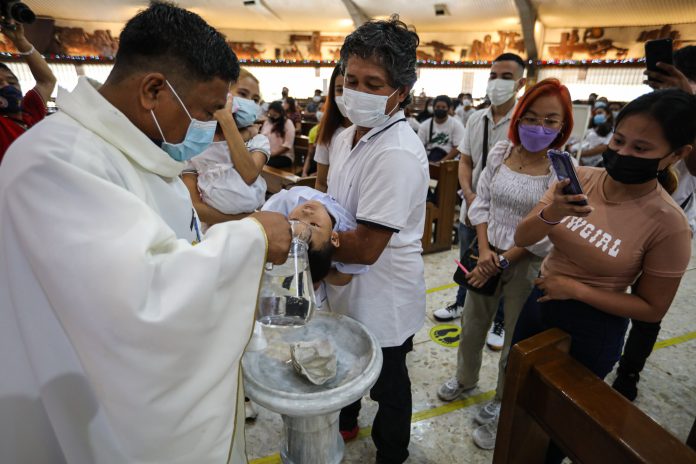Reflection for the Feast of the Holy Family (Cycle C)
It is the unwritten duty of every parent to rear their children to become more responsible in and for their generation, than their ancestors were responsible for theirs. It is the unwritten duty of every generation to build upon the learnings of the past in order to support the visions of the future.
Oftentimes, we are intuitively anchored on the presumption and desire that our offspring will obtain more knowledge, that they will or should know more things; or that they will acquire more exquisite skills and more exceptional abilities, that they will or should be more efficient than us and able to do more things.
In some cases, it appears to be a deeply-rooted yearning for a perfection rendered unreachable from the present circumstances of our imperfection, projected onto them: “Whatever I will not or cannot fulfill in my lifetime, my children will fulfill in theirs.”
But in many cases, it also seems to be a deeply-rooted yearning for the perpetuity of our lifetime projects, an obligation for them to eternalize that which can give us a pride that lasts beyond death: “Whatever I do fulfill in my lifetime, my children must continue.” In any case however, our children are becoming unwilling extensions of our self-centered selves.
Children on the other hand, must learn to become more responsive to a suffering world that continues to diminish and atrophy with each generation’s irresponsibility. In the words of Emmanuel Lévinas, such a moral imperative must take precedence over all activities of ‘knowing’ and ‘doing,’ because only through a consciousness of total responsibility will a deteriorating world regenerate itself with the progression of humanity in time. It is meant for our sapient species to continuously learn and tenaciously rise up from its past errors with an improved wisdom for the future. If our history is not to ignominiously fade away and die, it is because our young have been taught to be committed to making it live again.
As the young Christ replied to Joseph and Mary, so shall they gently remind us, “Why were you looking for me? Did you not know that I must be in my Father’s house?” All of us were never called to perpetuate the “kingdom of those who came before us”, but only the “kingdom of God.”
Mutual responsibility and sharing begins in the home; it is its primary school. Children will slowly grow into the understanding of the daily duties and hardships their parents must confront and bear with in ensuring their development; they will see that responsibility essentially comes with sacrifices built upon a natural sense of selfless charity for those whom they love. When the inevitable time comes for ageing parents to need more attention and security, the familial roles are reversed, and the children care back. Not that parents should expect nor are children obliged to such a reciprocity, rather the love that is given or received is shared unconditionally. We share because we simply must, not because we owe some debt or because we want a return, but because it is instinctively the most human thing to do.
The sustainability of our civilization depends on the strength of our consciences for mutual responsibility and sharing; it depends therefore on the depth for compassion we teach and demonstrate to our children at home. If conscience and compassion is strong and deep enough, it will animate a solid sense of mutual responsibility and sharing that will overflow beyond the home; we must therefore encourage our children to actively nurture it, this time in the context of a reciprocity between others and the Spirit. We like Hannah in offering Samuel, will also declare, “I prayed for this child, and the Lord granted my request. Now I, in turn, give him to the Lord; as long as he lives, he shall be dedicated to the Lord.”
Blessed are they who dwell in the house of the Lord, the place that eternally exists because of infinite responsibility. It is where the ability and will to respond never ends, for it is only in such an authentic oblation that peace will truly last. It is where surely we would all want to be, a place of rest for children who earnestly performed their duties in and for the world. Models of infinite responsibility, they shall become children of the Beloved, where “… we shall be like him, for we shall see him as he is.”
Brother Jess Matias is a professed brother of the Secular Franciscan Order. He serves as minister of the St. Pio of Pietrelcina Fraternity at St. Francis of Assisi Parish in Mandaluyong City, coordinator of the Padre Pio Prayer Groups of the Capuchins in the Philippines and prison counselor and catechist for the Bureau of Jail Management and Penology.
The views expressed in this article are the opinions of the author and do not necessarily reflect the editorial stance of LiCAS.news.









